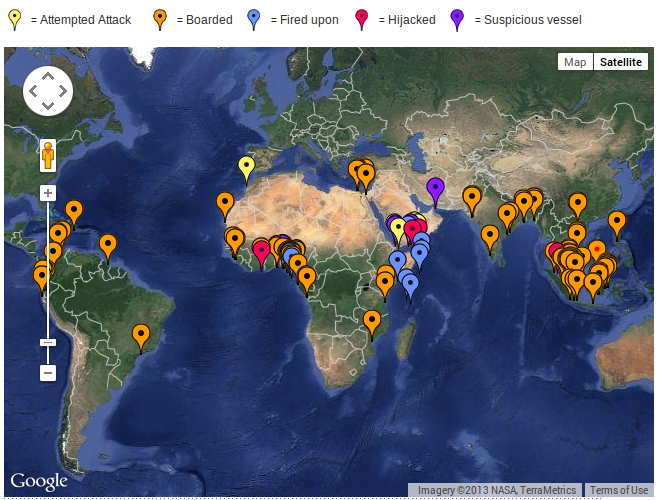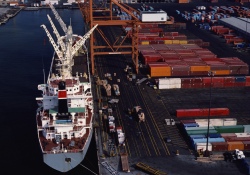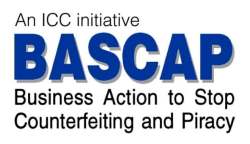- Maritime Piracy
- TalkFraud
- Membership
- Investigation
- Products & Services
The IMB aware of the escalating level of this criminal activity, wanted to provide a free service to the seafarer and established the 24 hour IMB Piracy Reporting Centre (PRC) in Kuala Lumpur, Malaysia.

A newsletter about fraud and global asset recovery from the office of International Chamber of Commerce's FraudNet. To read about key asset recovery cases and global compliance with anti-fraud and money-laundering laws, please click in the link above for the Newsletter PDF.

CCS offers a flexible membership arrangement based on the selection of predetermined membership packages. A prospective member can elect to join one or more Bureaux according to their requirements.

Losses due to official misconduct account for a great many maritime trade incidents. Each incident can be complex and wide-ranging in nature. It is therefore unlikely that any one company will have the knowledge and resources to be able to investigate it thoroughly.

- Details
 ICC Commercial Crime Services (CCS) recently hosted the organization’s 9th annual Economic Crime lecture. The event was held in London, on 16 June, 2009 in conjunction with Lawrence Graham, Solicitors. This year’s keynote speech was delivered by Paul Evans of the UK’s Serious Organized Crime Agency (SOCA).
ICC Commercial Crime Services (CCS) recently hosted the organization’s 9th annual Economic Crime lecture. The event was held in London, on 16 June, 2009 in conjunction with Lawrence Graham, Solicitors. This year’s keynote speech was delivered by Paul Evans of the UK’s Serious Organized Crime Agency (SOCA).
- Details
 Five years have now passed since ICC Commercial Crime Services (CCS) launched the fraud prevention network known as FraudNet. With the fiftieth member recently coming aboard, this international association of lawyers and law firms specializing in fraud and asset recovery has both stood the test of time and now passed an important milestone.
Five years have now passed since ICC Commercial Crime Services (CCS) launched the fraud prevention network known as FraudNet. With the fiftieth member recently coming aboard, this international association of lawyers and law firms specializing in fraud and asset recovery has both stood the test of time and now passed an important milestone.
- Details
The ICC International Maritime Bureau (IMB), in consultation with the International Chamber of Shipping, INTERTANKO and BIMCO, today dismissed a number of recent press reports claiming that pirates off the Somali coast target vessels in advance, allegedly making use of a network of international contacts.
Vessels attacked so far have included a range of vessel types from fishing boats and coastal dhows to bulk carriers and a supertanker. The vessels have been of many diverse flags, crewed by different nationalities, with various cargoes on board destined for a wide range of ports.
Pirates have even attempted to attack naval units mistakenly believing them to be merchant vessels. Pirates target vessels that are easy to board and in their vicinity. If an attack is successfully repelled they move on to another vessel. All the evidence indicates that these are primarily opportunistic crimes. The suggestion that vessels are targeted in advance using shore based intelligence is spurious.
IMB Director Pottengal Mukundan commented: “Such unfounded speculation is mischievous and unhelpful. It unjustly detracts from the good work done so far by the international naval forces and other agencies and diverts attention from the important task of providing a practical response to the difficult challenges in the region.”
Further allegations have been made in the press that London-based information channels have been utilised to provide intelligence to the pirate gangs. There is no evidence to support these allegations. Further, there is no information in the public domain that would enable pirates to precisely locate a targeted vessel at sea and then to mount a successful attack off the Horn of Africa.
For further information please contact:
Pottengal Mukundan,
Director, IMB.
Tel: +44 20 7423 6960
Email: pmukundan@icc-ccs.org
- Details
 The total number of pirate attacks in the Gulf of Aden and off east-coast Somalia so far in 2009 has already overtaken the figure for all of 2008, according to statistics collated by the International Maritime Bureau’s Piracy Reporting Centre (PRC).
The total number of pirate attacks in the Gulf of Aden and off east-coast Somalia so far in 2009 has already overtaken the figure for all of 2008, according to statistics collated by the International Maritime Bureau’s Piracy Reporting Centre (PRC).
Contact
Contact
© Commercial Crime Services, a division of the ICC Company limited by guarantee registered in England No 05716642 Registered office Cinnabar Wharf, 26 Wapping High Street LONDON E1W 1NG Tel: +44 (0)20 7423 6960 E-mail us your comments and remarks








